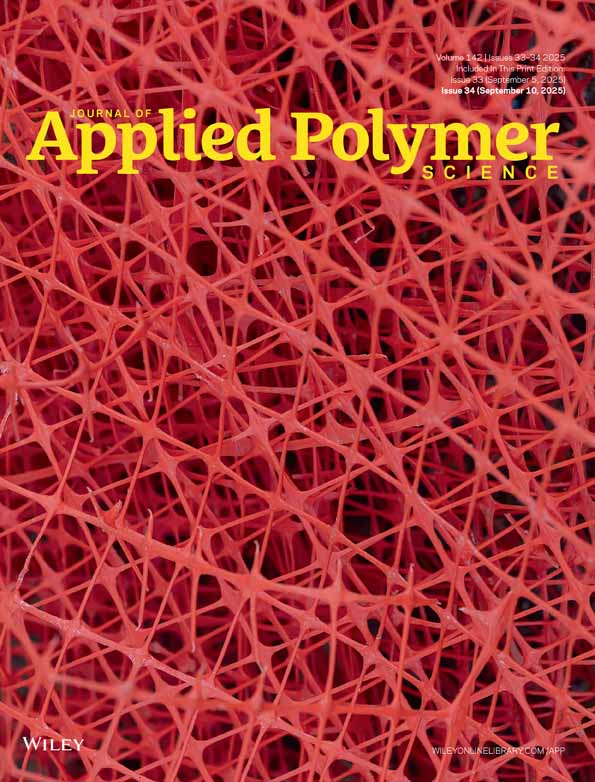Effect of isocyanates on the crystallinity and thermal stability of polyurethanes
Abstract
Polyurethanes were synthesized from polyester and butanediol with three different diisocyanates, i.e., 4,4´-diphenylmethane diisocyanate (MDI), m-xylene diisocyanate (XDI), and 2,4-toluene diiscynate (TDI). The effect of chemical structures of diisocyate compounds on the degree of crystallinity and the thermal stability were observed. Differential scanning calorimetry (DSC) and small-angle X-ray scattering (SAXS) were used to determine the degree of crystallinity of the hard segment. The thermal degradation of polyurethanes was studied by the thermogravimetric method. It has been shown that the polyurethane hard-segment crystallinity decreases in the following order: MDI> XDI> TDI>. The experimental results also indicated that polyurethanes with aralkyl diisocyanates, i.e., XDI, had the best thermal stability. The polyurethanes synthesized from aromatic diisocyanates, i.e., MDI and TDI, had worse thermal stability than from XDI. However, owing to the higher degree of hard-segment crystallinity for polyurethanes from MDI, these polyurethanes had a better thermal stability than those based on TDI. © 1996 John Wiley & Sons, Inc.




